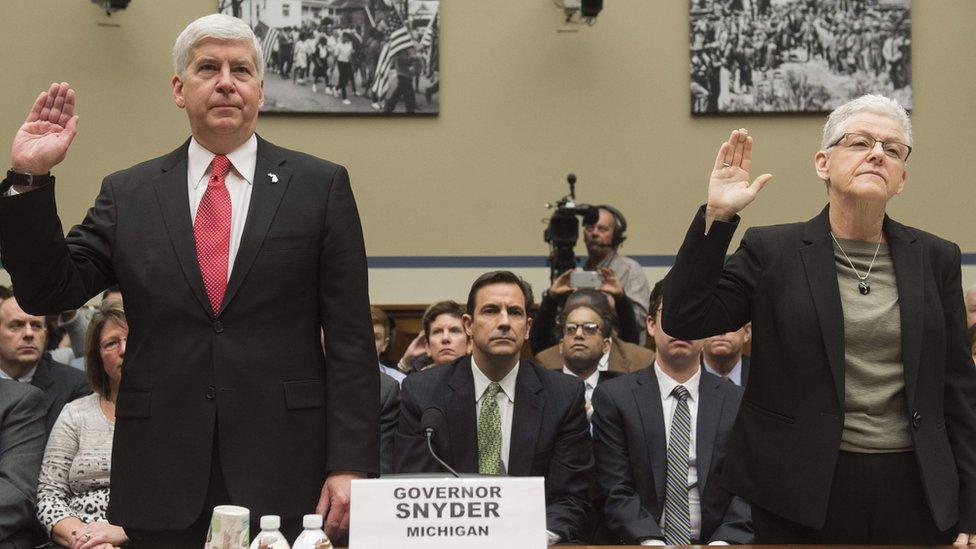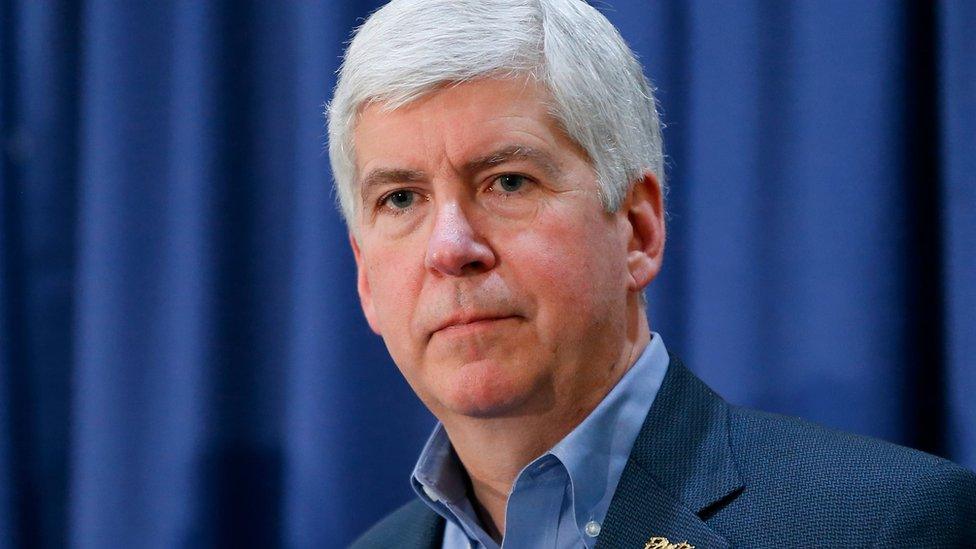Flint water crisis: Michigan governor grilled by lawmakers
- Published

Mr Snyder has been accused of ignoring the crisis for too long
Michigan Governor Rick Snyder is testifying before Congress on the Flint water crisis, which has left residents without clean drinking water.
Lawmakers lambasted Mr Snyder for his handling of the crisis, which he has said was an administrative failure.
The US Environmental Protection Agency is also being blamed for not addressing the crisis quickly enough.
Pipes in Flint began leaching lead after the city switched its water supply to save money.
Mr Snyder has called the crisis "a massive error of bureaucracy" and rejected calls for him to resign, most notably from Democratic presidential candidates Hillary Clinton and Bernie Sanders.
He has said switching water suppliers, which happened when the city's finances were under state control, was not about saving money.
The water from Flint River stripped lead from the pipes and contaminated the supply. Lead exposure can cause learning disabilities and behavioural problems in children.
Flint is a majority-African American city where over 40% of the residents live in poverty.
The situation in Flint "really reeks of environmental discrimination", representative Robin Kelly said.
Another representative, Elijah Cummings, told Mr Snyder he was responsible for the contamination of the city's water supply and that he would likely be subject to criminal charges if he was running a business.

Flint residents lined up at the Capitol to attend the hearing
"The governor's fingerprints are all over this crisis," said Mr Cummings.
Multiple lawmakers called for him to resign at the hearing, at which Mr Snyder called the water crisis "a terrible tragedy" and "the humbling experience of [his] life".
The governor said he acted swiftly when he learned the full scope of the crisis and that members of his staff repeatedly told him the water was acceptable for drinking when it was not.
Also appearing was Environmental Protection Agency director Gina McCarthy, who said the responsibility ultimately fell on Michigan state officials, and that they did not communicate the scope of the problem well enough.
But representative Jason Chaffetz told Ms McCarthy she should resign and that she and her agency "failed".
Ms McCarthy denied this, saying "the crisis we're seeing was the result of a state-appointed emergency manager deciding that the city would stop purchasing treated drinking water and instead switch to an untreated source to save money".
She admitted the EPA could have "pushed more" to check on the situation in Flint, but said the problem was not her agency's fault.
Mr Snyder has called on Congress to approve a bill $220 million (£152 million) bill to repair and replace the lead-contaminated pipes in Flint, along with other cities. The bill is currently on hold.
- Published7 March 2016

- Published21 January 2016

- Published22 January 2016
